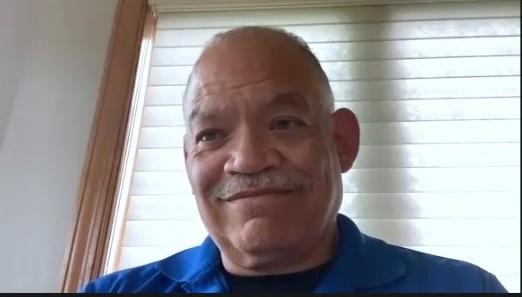
Madison College is poised to open on August 31 for the fall semester, but President Jack E. Daniels III said the school will “be flexible if the situation changes.”
Like most educational institutions, all Madison College campuses have been closed since March 15, with classes moving to an online distance learning platform for much of the spring semester due to the COVID19 pandemic.
In an interview on the Madison365 show Real Talk with Henry Sanders, Daniels said moving online exposed and even exacerbated some disparities among students.
“When we had to close and move everything online, we had to do all that in two weeks,” Daniels said.” We had to take a lot of the land based courses that we had and we had to shift them, but in shifting them, we also tore off the top about the gaps, and about the disparities. Everyone doesn’t have a computer. Everyone doesn’t have access to a hotspot. If your primary learning has been face to face where you got that instructor, and now you’re going online where the self discipline takes over, you’re not going to be successful. We have to really be conscious about the equity issue and how do we actually address that equity issue?”
Daniels said it wasn’t just classroom instruction that went online.
“We also put all of our student services online,” he said. “I had counselors, online advisors, online financial aid folk online, so that we’ve maintained that communication with students. And there will be some hybrid of that whenever we get to returning to the campus.”
The college has also made an effort to stay in touch with students of color especially to keep them engaged.
“We also, at the same time, made calls out to all the African American students because we wanted to connect with them. We wanted to make sure that they still knew that where we are, what we are and how we can help them,” he said. “We also are using our dollars that we got federally, not just to help students pass, from an economic standpoint, through the COVID crisis, but also with parent, how are we going to effectuate the online and other issues that are related to COVID. It’s about the engagement. It’s about having relationships with those students. Still advising them what their next steps up and hopefully moving them to completion.”
Daniels said he especially wants to connect with Black students while the Black Lives Matter movement is at the forefront. He said he sees parallels between today’s protests over police brutality following the police killing of George Floyd in Minneapolis and protest movements he lived through going back to the 1960s — riots in Detroit, Miami and elsewhere that Daniels said are more appropriately called “rebellions.”
“I would tell (Black students) the experiences that you are experiencing, though it may be 60 years apart or 50 years apart or 20 years apart, there’s similarities. And your frustrations are still my frustrations. Your anger — I feel that anger,” he said. “I’m tired of going and doing this over and over and over and over. What makes this different? And I think there’s some differences here. I think the first difference is that people woke up because they saw it on video. They see it now, it was in real time. You saw murder on TV. And that murder incited people.”



